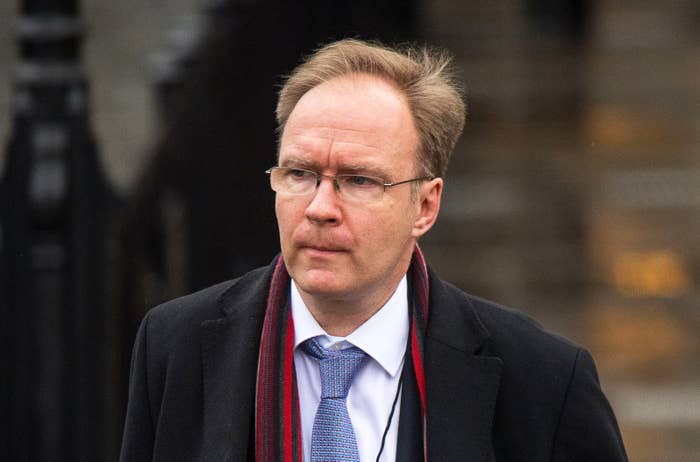
Negotiating a new economic relationship with the European Union will take years and Britain is not starting with the upper hand, the UK's former senior bureaucrat in Brussels warned today.
Appearing before the Commons' Exiting the European Union committee on Wednesday, Sir Ivan Rogers laid out a sobering but not entirely gloomy assessment of the challenges the UK faces in brokering a new relationship with the EU after Theresa May begins the process of formally withdrawing next month.
"We're up against a class act in the European Commission on negotiating," Rogers told MPs.
"There may be lots of things the commission isn't a class act at, but negotiating against people, they're really pretty good, and they've got lots of experience and lots of grey hairs and lots of people who've been doing it for 30 or 35 years," he said.
Rogers was Britain's ambassador to the EU but resigned in January after he was accused by Eurosceptics of being too pessimistic about the outlook after Brexit.
I welcome the resignation of UK ambassador to Brussels, Ivan Rogers. The Foreign Office needs a complete clear out.
IDS rages at 'pompous' Sir Ivan Rogers over anti-Brexit leaks – 'He's not God almighty https://t.co/mhWifp5MN3
With single market membership apparently off the table, the UK must push for "the biggest free trade agreement ever struck", covering services as well as goods, Rogers said.
It will have to be far deeper than other EU free trade agreements, such as that with Canada, and it will take many years to agree and ratify, he said. Among insiders in Brussels, the thinking is that a deep, comprehensive free trade deal won't be in place before the mid-2020s, even if negotiators on both sides work with unprecedented speed and focus, Rogers said.
It is "massively" in both sides' interests to agree a comprehensive deal, he added, and it would be "insane" for the EU to let Britain simply crash out of the union at the end of 2019 with nothing in place – but, he said, it could happen.
"We all know that's nuts in the real world, because why would you want to stop UK planes flying into European airports [on a particular date]?" he said. "We know this is insanity. We may know that that is nonsense in the real world. Sadly, that doesn't stop it necessarily happening."
A risk for Britain in the talks, Rogers felt, was that Europe agreed to free trade in goods, to the benefit of manufacturers such as German car companies, but dragged its feet on opening up services, which are most important for the UK economy.
With a comprehensive free trade agreement likely to take years, a temporary transitional deal will need to be agreed. Rogers said he tried to get transitional arrangements on the agenda for withdrawal discussions before Britain triggered Article 50, but his counterparts in Brussels wouldn't allow it.
According to Rogers, European leaders are sticking to their hard stance of "no negotiations before notification" because they want to appear strong and unified. In reality, he said, they are afraid that the UK will exploit divisions and competing priorities among the other 27 member states to "pick them off".
One sticking point in the talks, he felt, is that Brussels has a "much more legalistic view of the world than we do". To many there, once Britain walks away from the union, it should be treated as no more special than any other country that is outside the bloc.
However, he added that the attitude toward the UK was more pragmatic than people think. He said there was anger and shock after the referendum, and naive hope that Britain would reverse course.
He said some European officials thought, "Bloody good riddance, they've had their foot on the brake of history for the last 40 years and now they're gone we shall be able to get on with our integration fantasies."
But most people on the other side of the negotiating table were pragmatic and ready to get on with striking a new deal, he said.
Ultimately, the deal will be done by the respective European leaders, not technocrats in Brussels or London, or even by "Davis-level" ministers, Rogers said, referring to the Brexit minister, David Davis.
Faced with the "biggest single peacetime challenge that the government has ever faced", the UK government had made a decent start, Rogers felt. But he said there was a risk of "solipsistic thinking" from officials who "just sort of sit in their own cocoons" in London and who are not well-informed about the thinking of key players in Brussels and the other member states.
Asked about a divorce bill of up to €60 billion that EU officials could demand Britain pays upon leaving, Rogers said he wouldn't take those numbers "excessively seriously".
He also described Scotland's plans to stay in the single market if the UK leaves as "legally creative".
